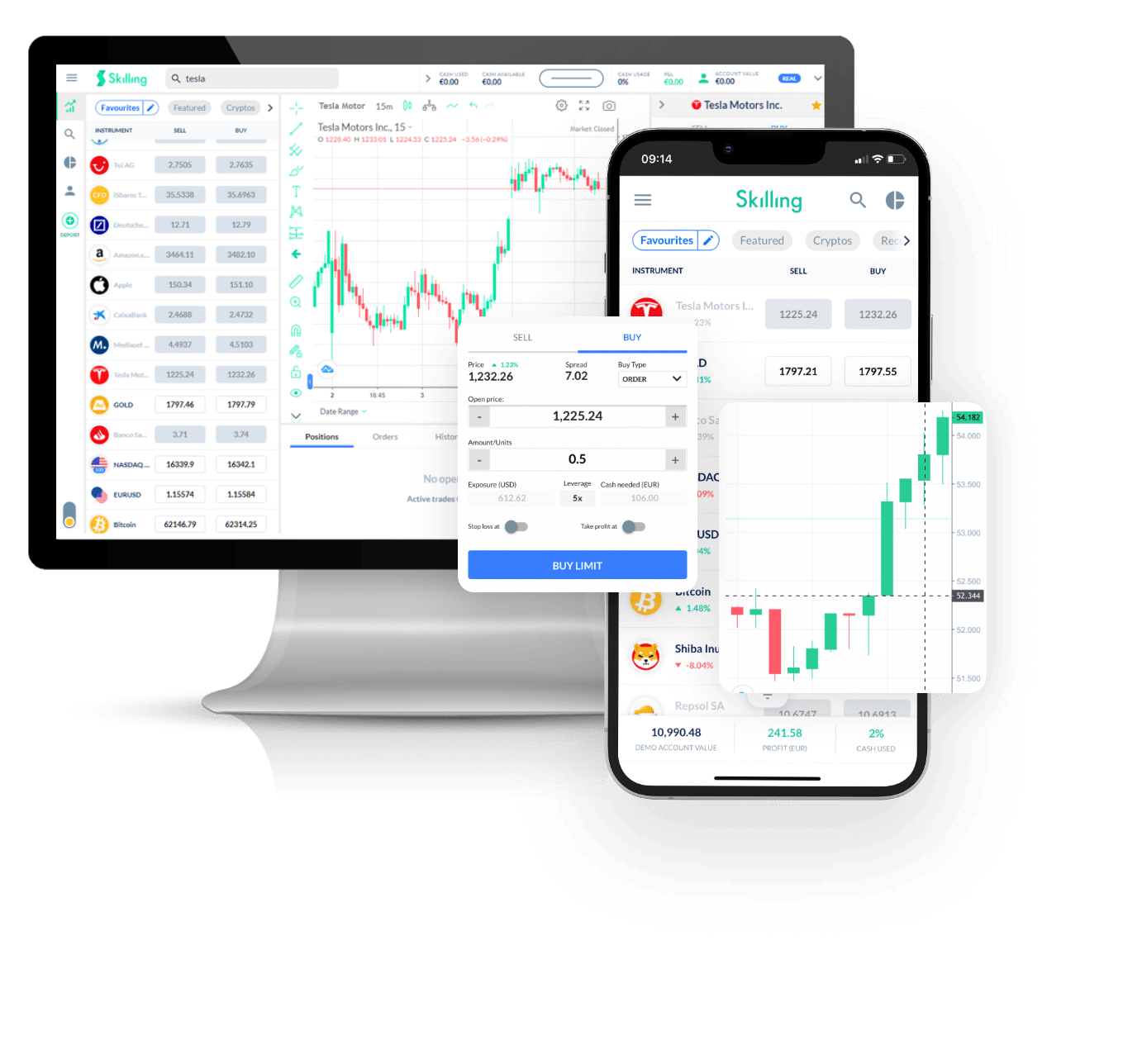Loading...
ebay Stock (EBAY.US): Live Price Chart
[[ data.name ]]
[[ data.ticker ]]
[[ data.price ]] [[ data.change ]] ([[ data.changePercent ]]%)
Low: [[ data.low ]]
High: [[ data.high ]]
About
History
Competitors
About
History
Competitors
eBay (EBAY.US) is a renowned e-commerce company with a current market cap of $24.10 billion as of 19th June 2023. Founded in 1995 by Pierre Omidyar, eBay started as an online marketplace for buying and selling goods. It quickly gained popularity and went public in 1998, becoming one of the pioneers in the e-commerce industry. The company offers a platform for individuals and businesses to sell a wide range of products globally.
Over the years, it has evolved and expanded its services, introducing features like auction-style listings and the "Buy It Now" option. As a trusted online marketplace, eBay continues to connect buyers and sellers worldwide, fostering a vibrant and dynamic e-commerce ecosystem.
The share price history of eBay stock has witnessed fluctuations over the past five years. The stock's highest point in the last five years was $81.19 in October 2021, while the lowest point was $26.01 in December 2018. Throughout its history, eBay has experienced various milestones and changes in its business model. It started as an online auction and shopping platform, revolutionizing e-commerce.
Over time, it expanded its services, including fixed-price listings and classified advertisements. The company has also made strategic acquisitions to enhance its offerings. However, it faced increasing competition from other e-commerce giants and evolving consumer preferences. It's important to note that stock prices are subject to market dynamics and can change rapidly, so it is crucial to conduct thorough research and analysis before making any investment decisions.
Before trading eBay stock, it's worth considering the following competitors in the e-commerce industry. Amazon (AMZN) is a dominant player known for its vast product selection and fast delivery. Walmart (WMT) has been actively expanding its online presence and offers a wide range of products. Shopify (SHOP) provides e-commerce solutions for small businesses.
Etsy (ETSY) focuses on unique handmade and vintage items. Alibaba Group (BABA) is a global e-commerce giant, particularly prominent in China. Additionally, there are marketplaces like MercadoLibre (MELI) that operate in Latin America, and Rakuten (RKUNF) based in Japan. Each competitor has its unique strengths and market presence, and considering them may provide a broader perspective on the e-commerce landscape when evaluating eBay as an investment opportunity.
| Swap long | [[ data.swapLong ]] points |
|---|---|
| Swap short | [[ data.swapShort ]] points |
| Spread min | [[ data.stats.minSpread ]] |
| Spread avg | [[ data.stats.avgSpread ]] |
| Min contract size | [[ data.minVolume ]] |
| Min step size | [[ data.stepVolume ]] |
| Commission and Swap | Commission and Swap |
| Leverage | Leverage |
| Trading Hours | Trading Hours |
* The spreads provided are a reflection of the time-weighted average. Though Skilling attempts to provide competitive spreads during all trading hours, clients should note that these may vary and are susceptible to underlying market conditions. The above is provided for indicative purposes only. Clients are advised to check important news announcements on our Economic Calendar, which may result in the widening of spreads, amongst other instances.
The above spreads are applicable under normal trading conditions. Skilling has the right to amend the above spreads according to market conditions as per the 'Terms and Conditions'.

Trade [[data.name]] with Skilling
All Hassle-free, with flexible trade sizes and with zero commissions!*
- Trade 24/5
- Minimum margin requirements
- No commission, only spread
- Fractional shares available
- Easy to use platform
*Other fees may apply.
Why Trade [[data.name]]
Make the most of price fluctuations - no matter what direction the price swings and without capital restrictions that come with buying the underlying asset.
CFDs
Equities
Capitalise on rising prices (go long)
Capitalise on falling prices (go short)
Trade with leverage
Hold larger positions than the cash you have at your disposal
Trade on volatility
No need to own the asset
No commissions
Just low spreads
Manage risk with in-platform tools
Ability to set take profit and stop loss levels

